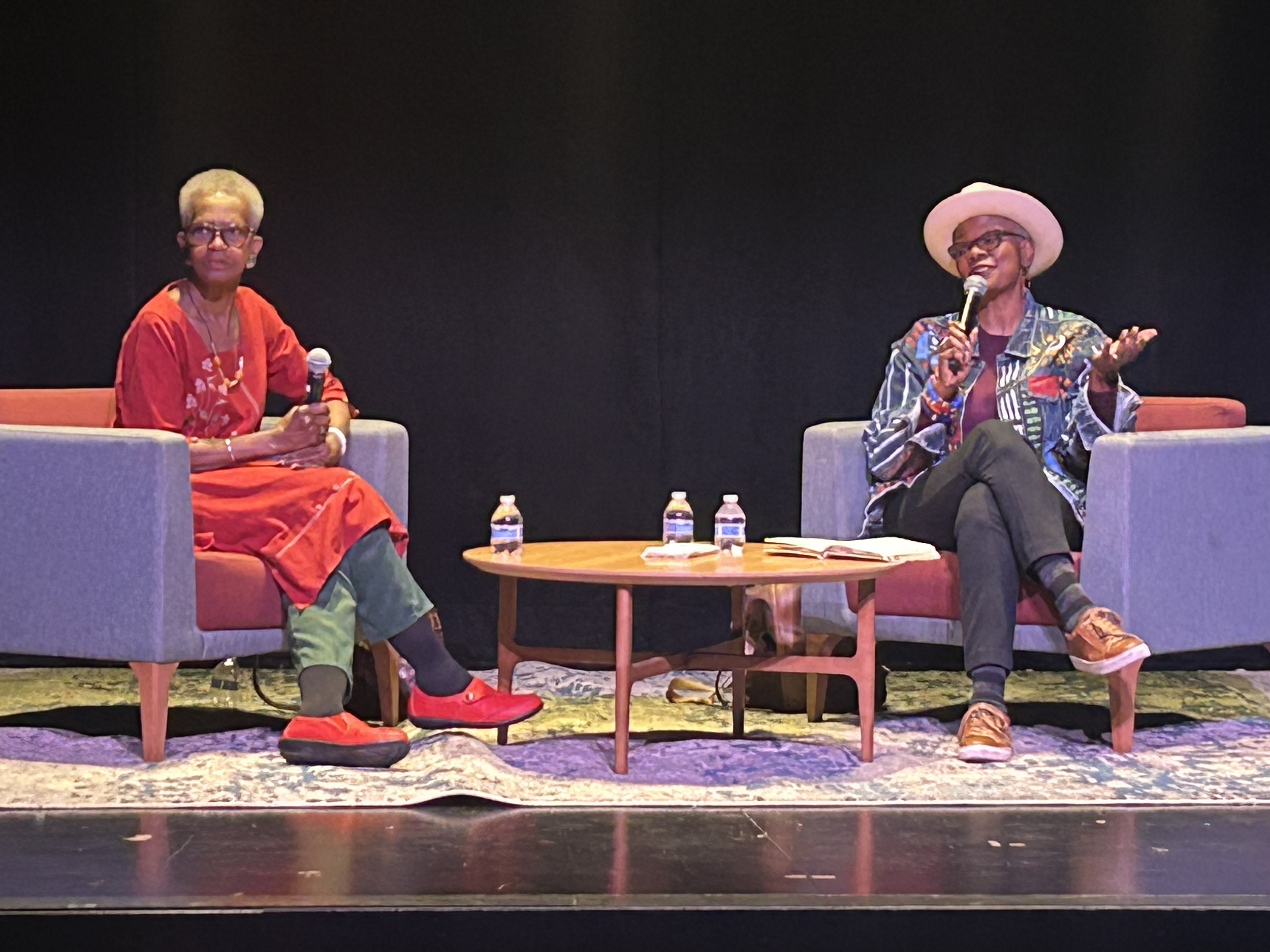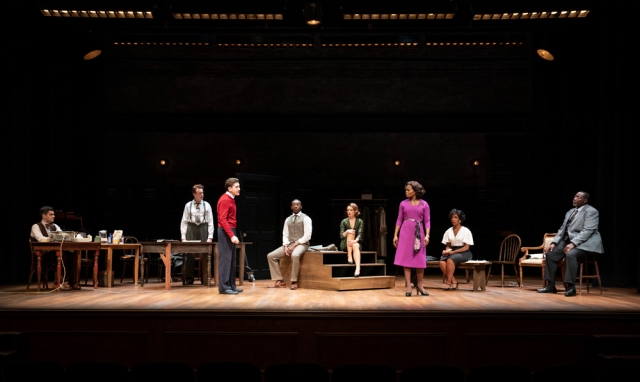Lighting the Stage: An Evening with Kathy A. Perkins
A Life and Career in Theater Lighting
 Lighting designer Kathy A. Perkins visited Spelman College's Rockefeller Arts Building, Baldwin Burroughs Theatre on Thursday, Apr. 17. The program was free and open to the public. Perkins spoke to participants about her career and experience in theater. She grew up in Mobile, Ala., during the Civil Rights Movement, and she started performing in elementary school, church and with a theatre performance group. She continued performing through her college years.
Lighting designer Kathy A. Perkins visited Spelman College's Rockefeller Arts Building, Baldwin Burroughs Theatre on Thursday, Apr. 17. The program was free and open to the public. Perkins spoke to participants about her career and experience in theater. She grew up in Mobile, Ala., during the Civil Rights Movement, and she started performing in elementary school, church and with a theatre performance group. She continued performing through her college years.
Perkins recounted a story about her shift from spending her youth as an amateur and on-stage performer to creating backstage lighting designs as a freshman at Howard University. All the theater freshmen had to take a practicum class in which they learned how to work in a box office, custom shop, seam shop, lighting, props, or any other type of production. On one of her assignments, she had to work as the props person and on the lighting crew, and a sophomore classmate supervised her in lighting and stage management.
“We worked very well together. We were sitting backstage waiting for the curtain to go up. Out of the blue, he said, “What are you going to do with a BFA in acting (in 1973). I looked at him and said, “I’m going to Broadway.” He laughed. He said I’ve seen you hanging lights and focusing, you’re really good at this. We need more black people backstage and you would be great. And plus, I’ve seen your acting and you’re ok. Lighting would be better for you. You’ll never wait tables. You’ll always have a job. We have a touring company on stage. You can make a lot of money. After I got over my bruised ego about the acting (comment), I took him up on his offer and started working with the touring house. I fell in love with lighting. I had such support from the faculty and the tour house,” Perkins said.
She earned her bachelor of fine arts degree from Howard University and her master of fine arts from the University of Michigan. Perkins expressed the need for more Black theater historians to keep our history.
“I didn’t feel like an anomaly until I left D.C. We had an incredible tech program at the time: costumes, scenery, and lights. We won the KTCF Festival. We beat out major white institutions. We didn’t have (a lot of) resources, but the work we did was amazing. Everybody I worked with was black,” Perkins said. According to her biography, throughout a remarkable 45-year career, Perkins has worked in theaters all over the United States and as far away as South Africa and Cuba. Perkins has designed lighting for Broadway, Off-Broadway, and regional theatres such as American Conservatory Theatre, Arena Stage, Berkeley Repertory, Seattle Repertory, St. Louis Black Repertory, Alliance, Goodman, Steppenwolf, Baltimore Center Stage, Alabama Shakespeare Festival, New Federal Theatre, Mark Taper, Yale Repertory, Actors Theatre of Louisville, Syracuse Stage, Two Rivers Theatre, People’s Light, and Playmakers Repertory. Internationally, she has designed in South Africa, Switzerland, Cuba, Canada and Brazil. She has edited seven anthologies on women nationally and internationally as a scholar and is a senior editor of the Routledge Companion to African American Theatre and Performance.
According to her biography, throughout a remarkable 45-year career, Perkins has worked in theaters all over the United States and as far away as South Africa and Cuba. Perkins has designed lighting for Broadway, Off-Broadway, and regional theatres such as American Conservatory Theatre, Arena Stage, Berkeley Repertory, Seattle Repertory, St. Louis Black Repertory, Alliance, Goodman, Steppenwolf, Baltimore Center Stage, Alabama Shakespeare Festival, New Federal Theatre, Mark Taper, Yale Repertory, Actors Theatre of Louisville, Syracuse Stage, Two Rivers Theatre, People’s Light, and Playmakers Repertory. Internationally, she has designed in South Africa, Switzerland, Cuba, Canada and Brazil. She has edited seven anthologies on women nationally and internationally as a scholar and is a senior editor of the Routledge Companion to African American Theatre and Performance.
In a full-circle moment, Perkins worked on ‘Trouble in Mind,’ written by Alice Childress, who was also her friend. Her friend from Howard, who encouraged her to go into lighting, joined her on opening night and told her she “still made it to Broadway.” “That meant a lot to me. The play was special because of Alice Childress and the history,” Perkins said about her first Broadway show.
The Importance of Networking
Perkins educated participants on how to navigate the networking scene. One of her main goals is to mentor up-and-coming designers since a lot of networking is done within industry circles. She created a Facebook page called Black Stage Designers, where her peers share business insights and jobs.
“When you work for certain people, if they like you, they will call you back. Sometimes people will see your work (and call you). But with black designers, we have to network amongst ourselves to get the work. Networking is so important,” Perkins said. “Don’t be afraid to contact people. The people you are in school with will be the people who are in a position to hire or fire you. Be careful how you treat people. You never know where people are going to be.”
